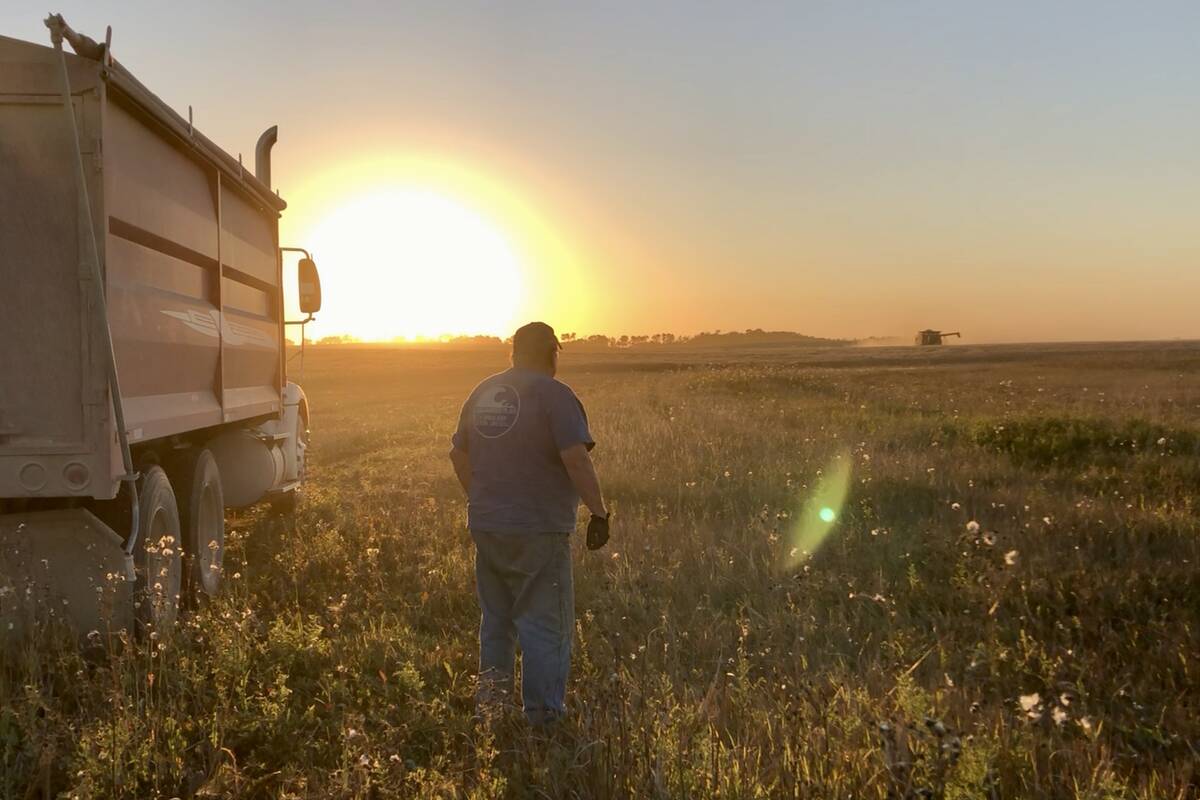Q:I am elderly and full of arthritis. Are there some things I should or should not do?
A: This depends on what type of arthritis you have. There are many different types. Osteoarthitis is most common, caused by age and wear and tear to the joints.
Rheumatoid arthritis is more serious in some ways, because it can affect other organs, not just the joints. It is a form of autoimmune disorder. Moderate exercise is good for most types of arthritis, but you should not do too much during an acute flare-up.
Read Also

VIDEO: Bittersweet harvest for this family farmhand
Bruce Burnett helps his brother harvest wheat and canola for the last time on the family farm in Manitoba where they both grew up.
Extra-strength Tylenol is recommended for osteoarthitis. Anti-
inflammatory drugs do not make much difference, and can lead to internal bleeding if taken for too long. Do not mix anti-inflammatories and Aspirin, as this combination can lead to a thinning of the blood. When it takes a long time to clot you could lose too much blood in an accident.
Some people feel the health food substance glucosamine is helpful. You will need to take it regularly three times a day for two or three months before you will notice much difference. It is supposed to help the body build cartilage that has worn thin.
People with rheumatoid arthritis need anti-inflammatory medications and may also need some type of immunosuppressant drug such as Methotrexate If you think you have rheumatoid arthritis, you should see a rheumatology specialist.
Knee replacement
Q: I am a 66-year-old female and I need a knee replacement because my cartilage is worn out. I have heard about a stem cell discovery made from human fat. This is made into cartilage and is injected into your knees. I would rather have this done than a total knee replacement. Can this be done in Canada? Is there a website you can give me?
A: The human embryo begins with a single cell. When this cell divides, the resulting ones do not all end up the same. The cells forming the brain or kidneys look and behave quite differently. The earliest cells, which have not become “differentiated,” are known as stem cells and have the possibility of becoming any type of human cell, even cartilage.
Researchers at the University of Cincinnati’s Sportsmedicine and Orthopedic Centre have been trying to figure out how a cell becomes cartilage so they can repair damaged cartilage in knees.
There have been some experimental procedures done on athletes with damaged knees, but this is not yet available to the public. It may be 10 years before this procedure is perfected, so you may need to get the knee surgery.
There is a good web resource regarding knees at www.Knee1.com.
















